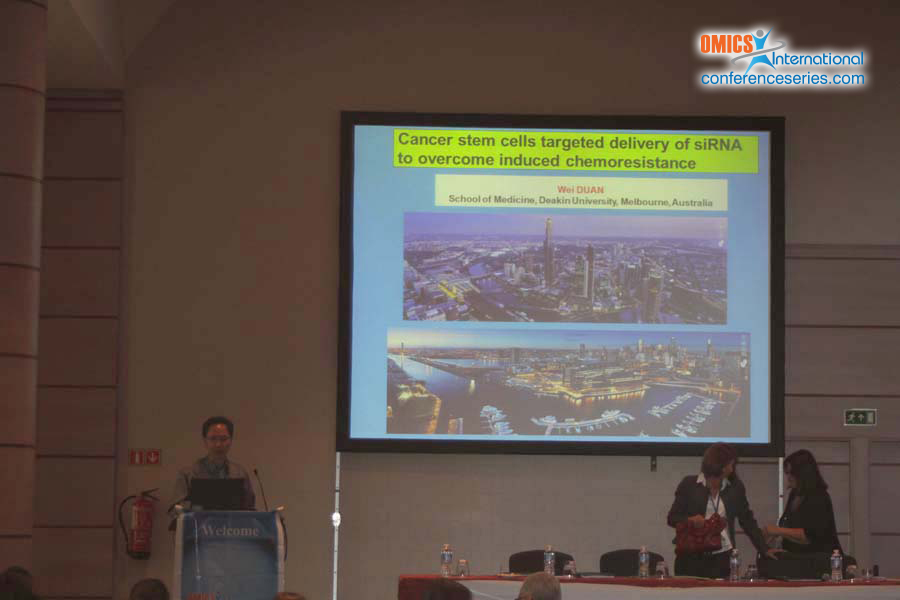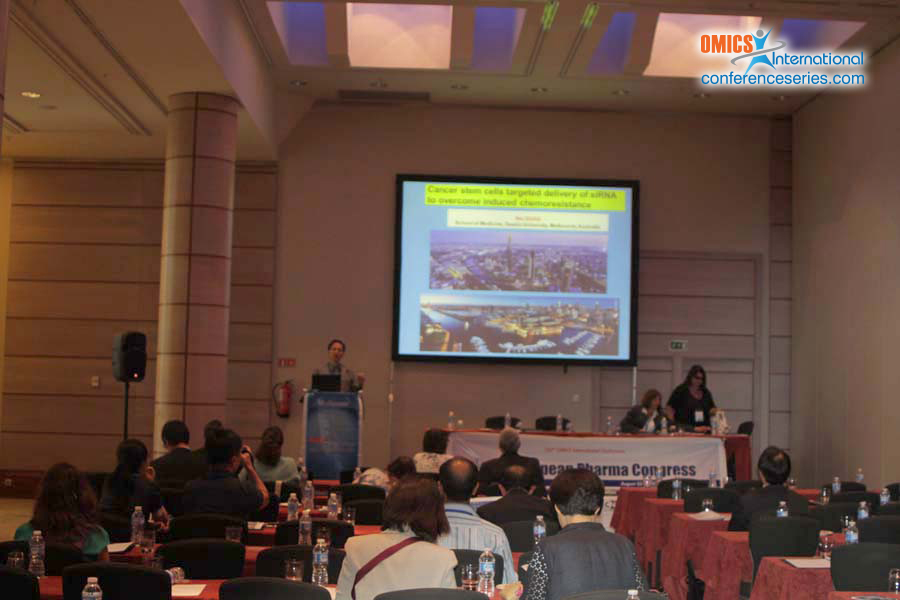
Wei Duan
Deakin University, Auatralia
Title: Cancer stem cells targeted delivery of siRNA to overcome induced chemoresistance
Biography
Biography: Wei Duan
Abstract
Aptamers, also known as chemical antibodies, are short single-stranded DNA or RNA that fold into complex three-dimensional structures and bind to target molecules with high affinity and specificity. Aptamers have several advantages that offer the possibility of overcoming limitations of antibodies: they have very low immunogenicity and toxicity; they display high stability at room temperature, in extreme pH, or solvent; once selected, they can be chemically synthesized free from cell-culture-derived contaminants, and they can be manufactured at any time, in large amounts, at relatively low cost and reproducibly; they are smaller and thus can diffuse more rapidly into tissues and organs and they have lower molecular weight that can lead to faster body clearance. To improve cancer treatment outcome, the cancer stem cells must be effectively eliminated. However, with a few exceptions, most anticancer drugs currently on the market are incapable of eliminating cancer stem cells. Although the Nobel Prize-winning RNAi holds great potential as a cancer stem cell therapeutic, its translation into clinical medicine is hampered by the lack of an efficient in vivo delivery system. Based on our recently developed the world first RNA aptamers (chemical antibodies) against cancer stem cell surface marker proteins, we have developed a novel strategy using an all-RNA aptamer-siRNA chimera to target cancer stem cells in vivo. Further optimisation of this platform empowered us, for the first time, to achieve cancer stem cell-targeted delivery of siRNA in mouse xenograft tumour models of induced chemo resistance of breast cancer. This strategy can be applied to cell-targeted silencing of any disease genes in vivo. As our system is amenable to good manufacture processes with scale-up ability, the achievement will accelerate the pace of translating RNAi technology to oncology clinics and help to realise the potential of RNAi in diseases where there are currently no drugs available.


